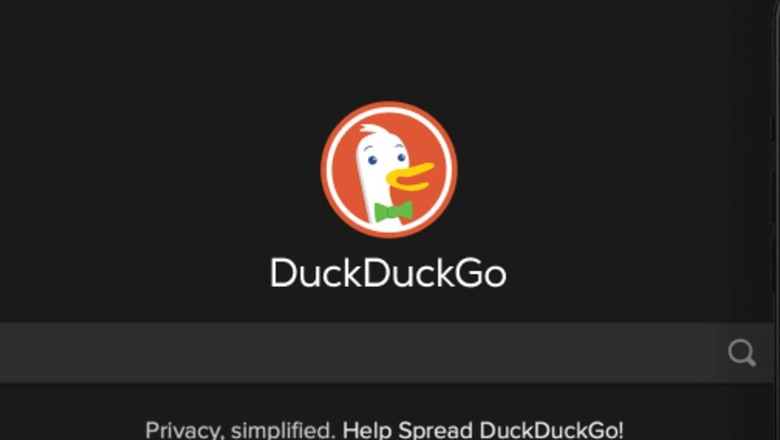
views
Following Russia’s invasion of Ukraine, online platforms have taken a variety of actions. But a seemingly minor move by DuckDuckGo, the privacy-focused search engine that sees itself as a direct competitor to Google Search, has sparked a massive uproar.
The DuckDuckGo CEO, Gabriel Weinberg, stated that the company will take significant steps that would down-rank sites associated with Russia which spread misinformation.
In a Twitter thread, he wrote, “Like so many others I am sickened by Russia’s invasion of Ukraine and the gigantic humanitarian crisis it continues to create. #StandWithUkraine️. At DuckDuckGo, we’ve been rolling out search updates that down-rank sites associated with Russian disinformation.”
Despite the fact that the decision was more or less in accordance with how other major online platforms have responded to the Russian invasion, DuckDuckGo’s user base has expressed strong opposition.
Thousands of Twitter users have reacted to Weinberg’s tweet with primarily unfavourable remarks about the decision, accusing the firm of censorship and bias in search results.
Such comments are not shocking as there are many who are Russia sympathisers like those who support Ukraine. But Weinberg decided to explain the decision to one of those critics.
He wrote on Twitter: “The whole point of DuckDuckGo is privacy. The whole point of the search engine is to show more relevant content over less relevant content, and that is what we continue to do.”
“Search engines by definition try to put more relevant content higher and less relevant content lower — that’s not censorship, it’s search ranking relevancy,” Weinberg told another user.
Weinberg didn’t go into detail about the decision or how the downgrading will be implemented. However, his tweet comes after the European Union announced that the “Kremlin’s media machine” will be banned for spreading propaganda justifying Russia’s invasion of Ukraine.
In the case of DuckDuckGo, it didn’t start out as a free speech site, despite the fact that many of its users tend to think so. Its most important promise to users is that it will not track queries in order to customise results, as Google does.
It promises to make searches private and anonymous, as well as provide built-in tracker blocking, making it more difficult for websites to collect information about a user.
Basically, it takes the opposite approach compared to other big tech platforms like Google and Facebook—these companies make money by targeting ads based on the users’ browsing history and personal data.
However, because the search results aren’t personalised to their preexisting views, Weinberg claims that DuckDuckGo allows users to break out of their filter bubbles and be exposed to opposing viewpoints.
Shane Osbourne, a software developer at DuckDuckGo, explained on Twitter what the firm means when it promises “unbiased search results”.
He wrote: “Everyone gets the same results, the results are not based on anything related to your personal information.”
Read all the Latest Tech News and Breaking News here




















Comments
0 comment